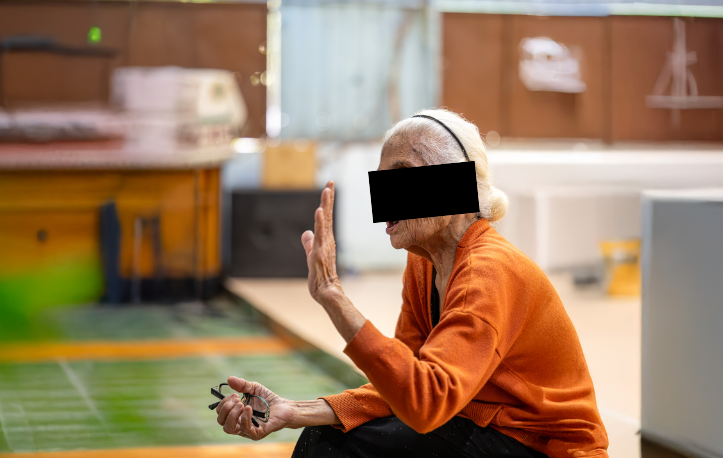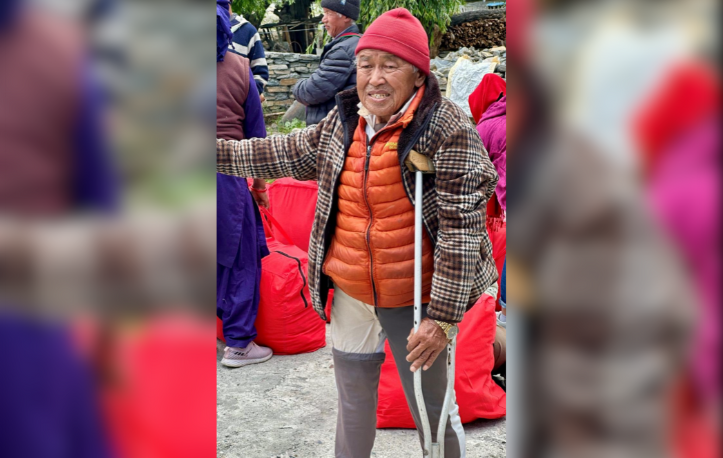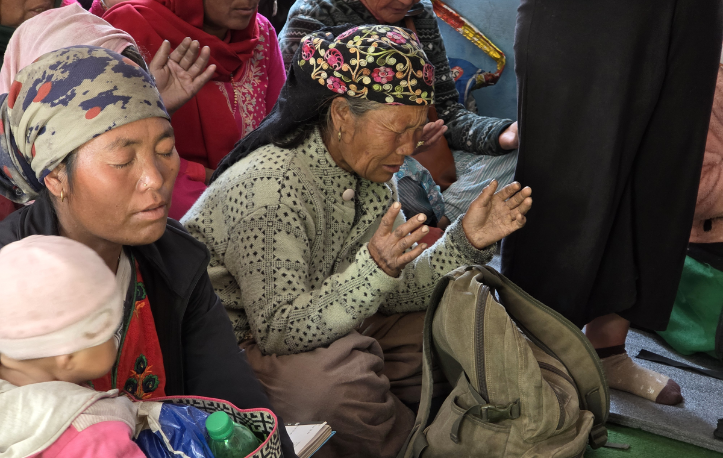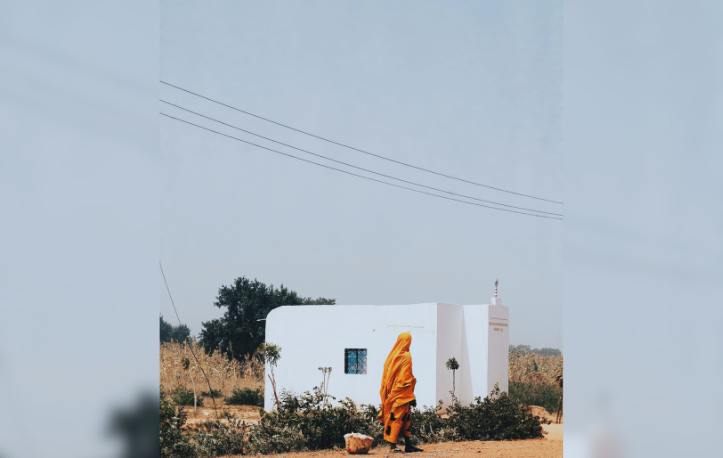Khoi lives alone in a tiny house not far from her church. At 95 years old, she still cooks and cleans for herself, enjoying visits from her children and grandchildren. The source of her contentment becomes most evident, though, when she recites her favourite verse of Scripture, Matthew 22:37. “You shall love the Lord your God with all your heart, with all your soul, and with all your mind,” she quotes, gently tapping her finger for emphasis.
She is thankful, she says, to still be healthy enough and strong enough to be on her own, though she regrets that she can no longer travel to share the Good News that won her heart. Instead, she now devotes herself to praying for her children, for her church and for those who continue the six-decade legacy of evangelism that she and her husband began among their people group.
Many who live in the highlands of Vietnam are by tradition animists, who sacrifice to nature spirits and practise ancestor worship. Some live in three-room longhouses that are built on stilts and adorned with animal horns at each corner of the roof to guard against evil spirits. The central room serves as a bedroom for the entire family and includes a shrine before which offerings are made to various spirits.
In 1924, Christian missionaries in the coastal city of Da Nang began training Vietnamese pastors and evangelists for the work of proclaiming the gospel among Vietnam’s geographically isolated ethnic groups. The work slowly progressed in the more populous tribes, but it was more than 30 years before the gospel reached Khoi’s people group.
Peace in Troubled Times
Khoi was born in 1929, during a tumultuous era of growing Vietnamese nationalism and radicalised socialist ideology, in what was then French Indochina. She was still an infant when Ho Chi Minh founded the Indochinese Communist Party (later the Communist Party of Vietnam) and began to organise communist committees throughout the country.
After French colonial rule of Vietnam ended, in 1954, the ensuing struggle between communist and anti-communist forces tore the country apart. Yet life went on as usual in the village where Khoi lived and worked the land with her family, and she eventually met a man named Nhat, whom she married in the early 1950s. Several years later, in 1957, an evangelist arrived with a message that transformed their lives.
“He came here to share about Jesus,” Khoi said. “After a few times of [meeting together], my husband accepted Jesus and I accepted Jesus.” Khoi and Nhat were the first in their village to place their faith in Jesus Christ. While their families and neighbours didn’t hinder or forbid their faith, they saw no reason to follow the same path. But they did notice a change in Khoi and Nhat.
“Before I became a believer, I just lived my normal life,” Khoi said, explaining that ‘normal’ meant a life of gruelling work, insecurity and bondage to capricious spirits. “After becoming a believer, I lived a very joyful life. I had joy in my heart and committed my life to the Lord.”
In 1959, the couple sensed that Nhat was being called into ministry. So their first step was to enrol at a Bible school in the much larger city of Da Nang. “I was just so happy to be with my husband and to be trained to serve the Lord,” Khoi said, “that I didn’t find any difficulties in moving from the village to the city. I enjoyed living there because I had the opportunity to study the Word of God.”
The couple moved frequently during their seminary training and the years that followed. Sometimes they were forced to move by local authorities, and other times they moved at the request of church leaders. Rather than leading to frustration or fear, however, the moves increased their ministry opportunities and reinforced their commitment to the Lord.
“You know,” Khoi said, “it is amazing that the Lord put in my heart … learning and serving. At that time, we had land, we had a field, we had a house, but when God called me and my husband to go to seminary and serve Him, it seemed like I forgot everything. I didn’t think about the possessions any more. My heart was just for ministry.”
As their family grew from two children when they first moved to Da Nang to six children, they planted new churches and other ministries, such as orphanages, as they moved from place to place. By 1975, an estimated 3,000 members of their people group had come to know Christ through the witness of evangelists like Khoi and Nhat.
“It was like a miracle of God,” Khoi said. “We don’t understand how God touched their hearts. We just loved the Lord and served the Lord with all our hearts, and we loved our people. We shared the gospel with the people, showed our love to them, and they just opened their hearts and accepted Jesus.”
Khoi and Nhat knew that hardships were a part of life, but being persecuted for their faith had never occurred to them, especially as they saw so many family members and neighbours placing their faith in Christ. Ethnic groups were being changed by the gospel, however, and communist leaders, who were unable to deliver on their promises of a better life, were taking note.
Gone
By 1975, Khoi and Nhat had two grandchildren, giving them a joyful but more crowded home. In the spring of that year, communist forces from northern Vietnam overran the anti-communist south, reuniting Vietnam under communist rule. Claiming that Christianity was a tool of the CIA to infiltrate Vietnam, the communists targeted Christian pastors like Nhat as foreign agents and enemies of the regime.
One day, Nhat left the house and never returned. Khoi heard rumours that he had been arrested and moved from prison to prison for a while, but she never saw him again and doesn’t know what became of him.
Government officials questioned Khoi repeatedly about her husband’s Christian activities. Eventually, they confiscated her house and property, leaving Khoi and her eight dependents homeless and desperately poor.
Struggling to support themselves, Khoi and her family lived with neighbours and friends, supplementing Khoi’s meagre earnings by gathering food from the jungle surrounding their village. Since the children of working age had grown up in the city and knew little about agriculture, the burden of earning a living fell solely on Khoi.
“I was so discouraged and so disappointed at the time,” she said, “but the Lord put love in my heart and I just relied on God. I didn’t know to do anything else.”
Between visits to government offices to seek information about Nhat, Khoi worked as a labourer in neighbours’ fields. She was also frequently summoned to the district police station for interrogation, requiring a walk of around 20km in worn-out slippers — and eventually barefoot — because she couldn’t afford shoes. The interrogations, scheduled for early in the morning and lasting hours, focused on Christian activities and associates of herself and her late husband. The time spent travelling and enduring the interrogations greatly interfered with her ability to earn a living.
“I worked very hard,” Khoi said. “I was so miserable at that time.”
Still, Khoi remained thankful for small blessings. When someone gave her eldest son an old bicycle, Khoi rejoiced at the ability to return to fellowship and ministry in a church. Every Sunday, her son took her almost 30km to church on the bike.
Each church visit brought a new interrogation; the authorities wanted to know where she went and with whom she met. But returning to church also reawakened her calling of evangelism. “In my mind,” she said, “I thought, ‘I don’t have a husband any more, so now my life is for the Lord only.’ That kept me faithfully following Jesus.”
Khoi soon started travelling from house to house, teaching the Bible to anyone who would listen. Then, while she was in church one Sunday morning, police raided the church, confiscating Bibles and ordering Khoi to come in for questioning yet again.
“Who are you, that you stand up and teach the Bible?” they demanded. “Who gives you the right to share the gospel?”
“No one told me to do that,” Khoi replied. “It is what I should do. It is the right thing to do.”
Harvest in the Highlands
Khoi has remained a faithful servant of God through 50 years of communist control in Vietnam, where today an estimated 15,000 members of her people group are Christians. She is thankful that her children, too, have followed the path of faith on which she and Nhat led them over the years. “The Word of God is rooted in their hearts,” she said. “They have grown up, they are faithful to the Lord, and it is the work of God in them.”
Having regained a home and the daily necessities that she did without for 37 years, Khoi continues to trust in God’s constant and loving provision. “God is my shepherd,” she said. “He takes care of me and He protects me.”
She joyfully teaches others the hard-earned lessons she learned through persecution and perseverance. “For those who are facing difficulties,” Khoi said, “I spend time to visit them and encourage them, and what I have I give to them. I tell them that our God knows everything, so we commit our life to God’s hands and just be faithful in the Lord.”
Download this free study guide to reflect more deeply on her journey.




Submit a Prayer